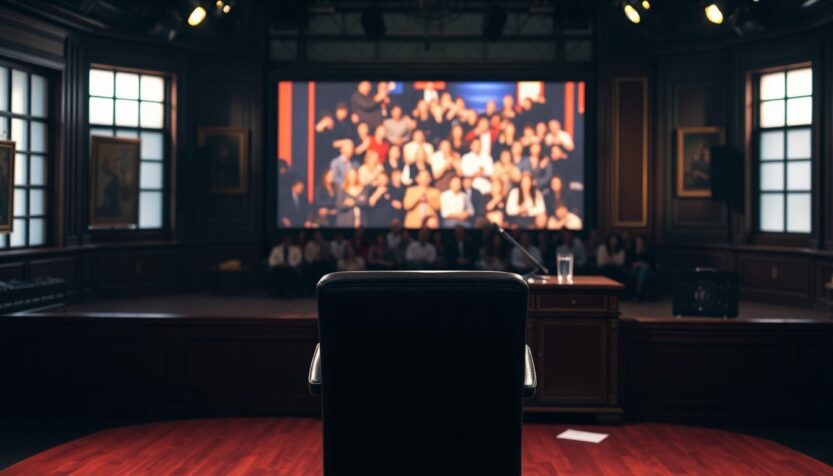In a surprising turn of events, late-night television finds itself at a crossroads as host Jimmy Kimmel faces suspension from his show, Jimmy Kimmel Live!. This decision by ABC, prompted by comments that drew the ire of FCC chairman Brendan Carr, has ignited a wave of support from fellow late-night comedians. The repercussions of this censorship extend beyond Kimmel, sparking a dialogue about the freedoms of expression in the television landscape.
The solidarity among late-night hosts was palpable as they took to their platforms to voice their discontent. Stephen Colbert, known for his astute commentary on socio-political issues, opened his monologue with a powerful statement, declaring, “Tonight, we are all Jimmy Kimmel.” In doing so, he emphasized the significance of standing against what he described as blatant censorship.
Censorship and Free Speech in Late-Night TV
Colbert’s remarks were not just a gesture of support; they highlighted a troubling trend where media figures face repercussions for their statements. He recalled a moment from former President Donald Trump‘s administration, where Trump attempted to rename the Gulf of Mexico, remarking, “With an autocrat, you cannot give an inch.” This sentiment resonated with the audience, who rallied behind the notion that compliance with censorship undermines the very fabric of free speech.
Rallying for Kimmel
Colbert’s support for Kimmel was echoed by other prominent figures in late-night television. Jon Stewart, with his characteristic wit, addressed the situation humorously on The Daily Show. He quipped about hosting a government-approved version of the show, reflecting on the absurdity of the administration’s approach to comedy and free speech. His tongue-in-cheek delivery underscored the seriousness of the issue while keeping the audience engaged.
Jimmy Fallon, in his usual light-hearted manner, acknowledged the confusion surrounding Kimmel’s suspension. He stated, “I don’t know what’s going on, and no one does.” Fallon’s sincerity in expressing his admiration for Kimmel showcased a camaraderie among hosts that transcends competition, emphasizing their shared experiences in navigating the challenges of late-night television.
The Current Landscape of Late-Night Television
Another late-night stalwart, Seth Meyers, dedicated a segment on Late Night to discuss the implications of Kimmel’s suspension. He humorously remarked, “I’ve always admired and respected Mr. Trump,” before pivoting to emphasize the importance of maintaining a platform for free speech. Meyers’ approach resonated with many as he highlighted the role of comedy in reflecting societal issues.
Emphasizing Unity
The support from Kimmel’s peers illustrates a significant moment for late-night television. The hosts’ reactions reflect a broader concern regarding the future of comedy and free expression in media. With mounting pressures from regulatory bodies and political figures, many late-night comedians are becoming more vocal about their commitment to defending their right to speak freely.
As the late-night landscape continues to evolve, Kimmel’s suspension serves as a case study in the complexities of media, governance, and entertainment. The collective outcry from late-night hosts not only reinforces their solidarity but also invites the public to reflect on the delicate balance between humor and censorship. In a world where comedic voices are increasingly scrutinized, the late-night community stands firm in its resolve to advocate for the principles of free speech.
In conclusion, the recent events have catalyzed a discussion that extends beyond Kimmel’s show. The late-night television community is rallying together, reinforcing the notion that while individual shows may face challenges, the collective voice advocating for free expression remains robust. As these hosts continue to navigate the shifting tides of media and politics, their unity serves as a beacon for the importance of protecting the freedoms that allow them to entertain and inform.

